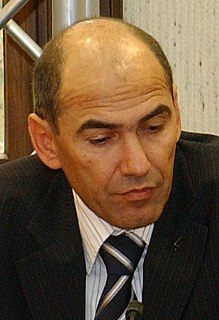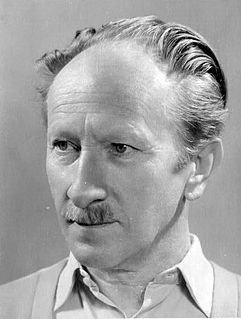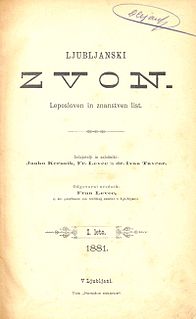Contents
List of Slovenian politicians:
List of Slovenian politicians:
| | This section is empty. You can help by adding to it. (October 2019) |

Parliamentary elections were held in Slovenia on Sunday, 3 October 2004 to elect the 90 deputies of the National Assembly. A total of 1,390 male and female candidates ran in the election, organized into 155 lists. The lists were compiled both by official political parties and the groups of voters not registered as political parties. Five candidates applied for the seat of the representative of the Hungarian "national community" and only one candidate applied for the seat of the representative of the Italian national community. In the previous election (2000), fewer than 1000 candidates on 155 lists applied.

The League of Communists of Slovenia was the Slovenian branch of the League of Communists of Yugoslavia, the sole legal party of Yugoslavia from 1945 to 1989. It was established in April 1937 as the Communist Party of Slovenia, as the first autonomous sub-national branch of the Yugoslav Communist Party. Its initial autonomy was further amplified with the Yugoslav constitution of 1974, which devolved greater power to the various republic level branches.

Edvard Kocbek was a Slovenian poet, writer, essayist, translator, member of Christian Socialists in the Liberation Front of the Slovene Nation and Slovene Partisans. He is considered one of the best authors who have written in Slovene, and one of the best Slovene poets after Prešeren. His political role during and after World War II made him one of the most controversial figures in Slovenia in the 20th century.

Solkan is a settlement in the Municipality of Nova Gorica in the Gorizia region of western Slovenia, at the border with Italy. Although it forms a single urban area with the city of Nova Gorica today, it has maintained the status of a separate urban settlement due to its history and the strong local identity of its residents.
The Slovenian Hockey Hall of Fame honors the contributions that individuals have made to the sport of hockey in Slovenia. It has opened in 2007, on the 80th anniversary of ice-hockey in Slovenia and 15th anniversary of Slovenia national ice hockey team, by the Ice Hockey Federation of Slovenia. In November 2012 11 new members were added as class of 2012 and 23 as class of 2008.

Josip Vošnjak was a Slovene politician and author, leader of the Slovene National Movement in the Duchy of Styria, one of the most prominent representatives of the Young Slovene movement.

The Slovene People's Party was a Slovenian political party in the 19th and 20th centuries, active in the Austro-Hungarian Monarchy and in the Kingdom of Yugoslavia. Between 1907 and 1941, it was the largest and arguably the most influential political party in the Slovene Lands. It was dissolved by the Yugoslav Communist authorities in 1945, but continued to be active in exile until 1992, when it merged with the Slovene Christian Democrats. The contemporary Slovene People's Party, founded in 1988, was named after it.

Young Slovenes were a Slovene national liberal political movement in the 1860s and 1870s, inspired and named after the Young Czechs in Bohemia and Moravia. They were opposed to the national conservative Old Slovenes. They entered in a crisis in the 1880s, and disappeared from political life by the 1890s. They are considered the precursors of Liberalism in Slovenia.
A Central Committee of the League of Communists of Yugoslavia was elected by the 13th Congress, and was in session from 1986 until 1990.
The 12th Congress of the League of Communists of Yugoslavia was held from 26 to 29 June 1982, in the Belgrade Sava Centar. The highest organ of both the government and the party, it was the first Congress of League of Communists of Yugoslavia convened since Josip Broz Tito's death in 1980. It was attended by delegates from all the republics and provinces, as well as a party delegation from the Yugoslav People's Army.